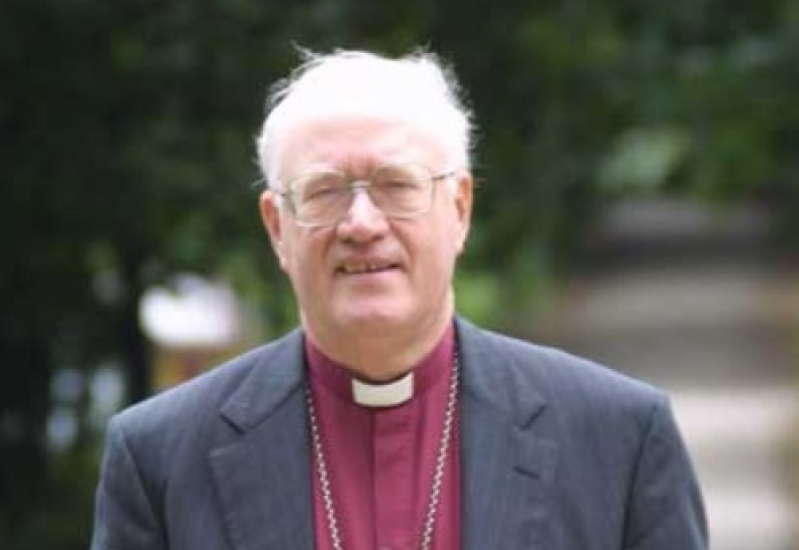
The 103rd former Archbishop of Canterbury, Lord George Carey of Clifton, has resigned as a priest following allegations by the BBC that he allowed a sex abusing priest to return to ministry many years ago.
The news follows only a day after Christian Daily International reported on calls for the current Archbishop of York, Most Rev. Stephen Cottrell, second highest official in the Anglican Communion, to resign over allegations of mishandling in the same matter — Cottrell refused to do so, at the time of publication.
Carey’s resignation was also announced only weeks after the current Archbishop of Canterbury, Most Rev Justin Welby, resigned over his handling of a serial sex offender, the late John Smyth, in an unrelated case although Carey has faced criticism in the past for his own handling of Smyth.
Carey, aged 89, head of the Anglican Communion from 1991 to 2002 and known for overseeing prayers at Princess Diana’s funeral in 1997, told the Diocese of Oxford in his resignation letter of Dec. 4, which has just been publicized, that age had been a deciding factor. A spokesperson reportedly later confirmed that the BBC investigation had been an influential factor.
“I wish to surrender my Permission to Officiate,” Carey wrote. “I am in my ninetieth year now and have been in active ministry since 1962 when I was made Deacon and then Priested in 1963. It has been an honour to serve in the dioceses of London, Southwell, Durham, Bristol, Bath and Wells, Canterbury and finally Oxford.
“I give thanks to God for his enduring faithfulness but want to recognise the remarkable contribution of (wife) Eileen whose faithfulness and support has been outstanding.”
A BBC R4 “File on Four” program investigation revealed that when Cottrell was Bishop of Chelmsford, he allowed a priest, David Tudor, to stay in his job even though the church had barred the priest from being alone in the company of children. The BBC reports the priest paid compensation to one of the victims of £10,000 for violent abuse.
The BBC investigation also echoed similar concerns about Carey’s own handling of Tudor.
Tudor was a defendant in two criminal trials in 1988 and in the first trial he admitted having sex with a 16-year-old schoolgirl. He had been cleared in court of indecently assaulting the girl when she was 15.
For the second trial, Tudor was initially jailed for six months for indecently assaulting three girls. However, this conviction was “quashed on technical grounds because the judge had misdirected the jury,” according to the BBC.
Tudor was also banned from ministry for five years for sexual misconduct by a church tribunal in 1989. He was later allowed to return to ministry, supported by Carey, then-Archbishop of Canterbury, according to the BBC.
Lord Carey allowed Tudor to return in 1993, under the condition of supervision. The BBC File on 4 investigation also discovered that Carey agreed to remove the sex abuser priest in 1996 from a central record of clergy made subject to disciplinary proceedings.
It is not the first time that Carey’s management of clergy proven to be involved in sex crimes has been questioned.
Carey resigned as honorary assistant bishop in the Diocese of Oxford in June 2017 following queries about his handling of sex abuse by the former Bishop of Lewes and Gloucester, Peter Ball, who served 16 months of a 32 month jail sentence for sexually abusing 18 young men.
Ball died aged 87 in June 2019 but Carey had been criticized in a report by Dame Moira Gibb during a review into the Peter Ball case.
“Lord Carey is currently unauthorised to undertake any form of ministry in the Diocese until further notice,” stated the Diocese of Oxford in a public statement at the time. The announcement verified there had been no allegations of abuse against Carey himself.
Carey accepted the criticisms and apologized to Ball’s victims, as confirmed in a public statement with the Diocese of Oxford in June 2017. He said that reading the Gibb Report caused him “deep distress” with its “narrative of the abuse perpetrated by Peter Ball which remained hidden for so long.”
"I accept the criticisms made of me,” Carey wrote in June 2017. “I apologise to the victims of Peter Ball.
“I believed Peter Ball's protestations and gave too little credence to the vulnerable young men and boys behind those allegations.”
In Feb. 2018, Carey was given permission to officiate as a priest by the Bishop of Oxford, Rt Rev. Steven Croft, who himself has been subject to allegations of mishandling in regards to a man disclosing his rape by a priest, as reported by the BBC.
“There were no legal grounds for me to deny Lord Carey's request for PTO in February this year as he was not subject to a disciplinary process, and there has never been any suggestion that he is himself a risk to children, young people or vulnerable adults," said Croft at the time. “Lord Carey's PTO remains in place at this time, providing him with a safe space to exercise his ministry.”
However, Carey’s licence to officiate was then revoked on June 17 2020 after an independent Learning Lessons Case Review into the late John Smyth QC—the same sex abuser known to Welby, who recently resigned over mishandling information—referred information comprising two letters to the National Safeguarding Team of the Church of England.
The review expressed concern that when Carey had been Principal of Trinity College Bristol in 1983-1984, he received a report about Smyth’s sex abuse crimes at that time but did not alert the appropriate authorities.
Carey’s license to officiate was reinstated in January 2021. In a public statement via the Diocese of Oxford back then, Carey said that Smyth attended the Bristol college for a “short period of part-time study,”
“An NST [National Safeguarding Team] core group was set up and the conclusion to their investigation was that I had seen the report,” wrote Carey.
“They also concluded that as a result of this investigation and further training that I have recently undertaken, they believe I do not pose a safeguarding risk. I welcome this latter conclusion.
“However, I respectfully disagree with their judgement.
“I have no memory at all of John Smyth at Trinity College Bristol. Let me say firmly that I condemn utterly the crimes of Smyth, and the damage he did to the lives of young people.”
Carey also spelt out his own opposition to abuse and support for survivors, at the time.
“I am fully committed to placing those who have survived abuse at the centre of our safe practices, thoughts and prayers, and to acknowledge how dreadful such abuse is and how lifelong the impact of such abuse.
“Over the past few years, I have spent an immense amount of time focusing intensively on safeguarding through working closely with two Inquiries into Peter Ball, including the Independent Inquiry into Child Sexual Abuse, and through undertaking specialised safeguarding training.
“This year I have made a report to the NST of a disclosure I received about non recent clerical sexual abuse.
“I am strongly of the view that training in safeguarding is a vital tool to overcoming failures to protect children and vulnerable adults. I am very willing to meet with survivors of John Smyth if they wish to meet with me.”





